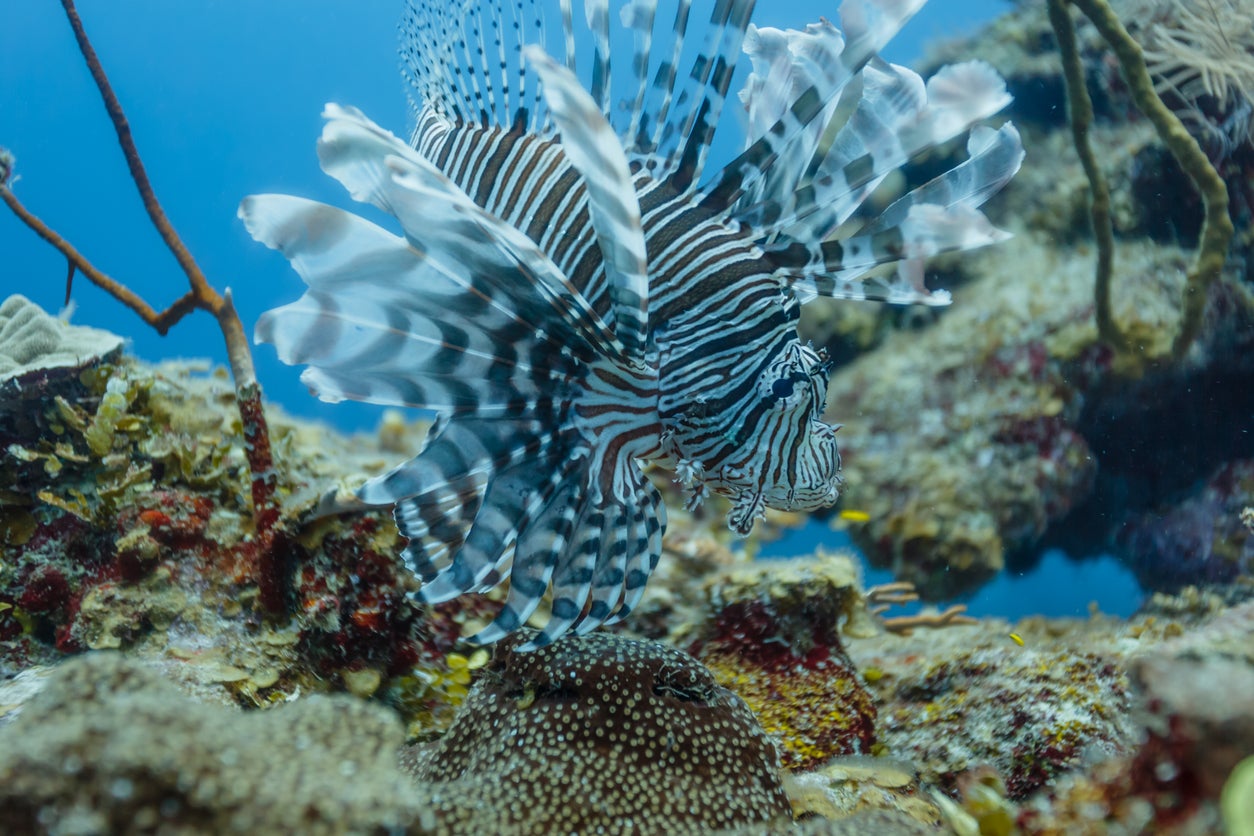Climate crisis ‘threatens 70 per cent of marine life in biodiverse-rich areas’
‘Species living in these biodiverse regions are generally ill-equipped to respond to large changes in temperature’

Your support helps us to tell the story
From reproductive rights to climate change to Big Tech, The Independent is on the ground when the story is developing. Whether it's investigating the financials of Elon Musk's pro-Trump PAC or producing our latest documentary, 'The A Word', which shines a light on the American women fighting for reproductive rights, we know how important it is to parse out the facts from the messaging.
At such a critical moment in US history, we need reporters on the ground. Your donation allows us to keep sending journalists to speak to both sides of the story.
The Independent is trusted by Americans across the entire political spectrum. And unlike many other quality news outlets, we choose not to lock Americans out of our reporting and analysis with paywalls. We believe quality journalism should be available to everyone, paid for by those who can afford it.
Your support makes all the difference.Global warming threatens marine life in more than 70 per cent of the most biodiverse-rich areas of Earth’s ocean, experts claim.
The most vulnerable marine communities contain most of the world’s reef-building coral species, which provide ecosystem services that support the livelihoods of millions of people, according to researchers from the University of Adelaide.
Other vulnerable regions are home to iconic marine megafauna including manatees.
“Our research shows that locations with exceptionally high marine biodiversity are the most exposed to future oceanic warming, making them particularly vulnerable to 21st-century climatic change,” said lead author Dr Stuart Brown from the University of Adelaide’s Environment Institute.
“This is because species living in these biodiverse regions are generally ill-equipped to respond to large changes in temperature.”
Using a new technique for comparing past and future extreme rates of oceanic warming, the researchers were able to map global exposure to future climate change and establish distances that plants and animals in vulnerable areas need to move to track suitable climatic conditions.
“In many cases, this will require moving distances beyond the oceanic regions that these species evolved in and are adapted to, at rates of movement rarely seen for marine life,” said Dr Brown.
"By showing that areas of high marine biodiversity are disproportionately exposed to future warming, our results provide important new information for deriving and strengthening conservation actions to safeguard marine biodiversity under climate change."
University of Adelaide associate professor Damien Fordham said that while it is known that recent human-induced climate change is affecting marine life through shifts in species distributions and abundances, the spatial pattern of exposure to past and future fast rates of ocean warming has been unclear.
He added: “By showing that areas of high marine biodiversity are disproportionately exposed to future warming, our results provide important new information for deriving and strengthening conservation actions to safeguard marine biodiversity under climate change.
“Actions that strengthen ecological and evolutionary resilience to climate change should be a priority.
“These could include improving fisheries management, assisting the movement of species, and the expansion of well-managed, climate-smart marine protected areas.”
Join our commenting forum
Join thought-provoking conversations, follow other Independent readers and see their replies
Comments